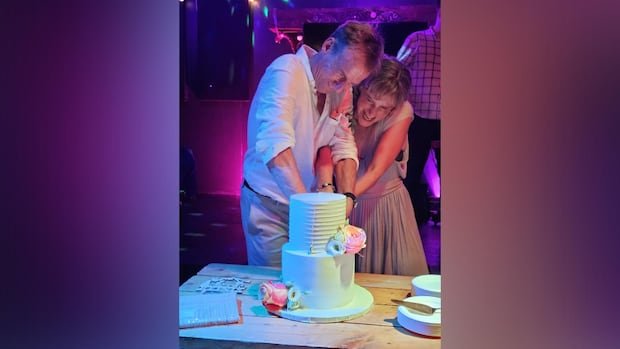Growing up, my dad often had quirky sayings like “Melanie now, Melanie forever, Chambers now, but not forever.” These words stuck with me, along with his warning that eating too much sugar would result in growing hair on my chest. These childhood memories shaped my perspective on life and relationships.
Growing up in the 1980s, my family lived in a house my mom called our forever home, with gables on the windows reminiscent of scenes from Anne of Green Gables, overlooking the Atlantic Ocean in the backyard. My mom was a career woman who balanced work and home life, often transitioning from business attire to leg warmers while preparing meals like pork chops.
My idealized view of my parents’ marriage shattered when they divorced when I was twelve. This event marked a turning point in my life as my mom and I moved to a small apartment in Dartmouth, Nova Scotia, while my dad lived three hours away. The experience of being from a divorced family left me feeling isolated and different from my peers.
While my dad found success and remarried post-divorce, my mom faced financial challenges, hosting Mary Kay parties and navigating the dating scene. Witnessing her struggles made me question the societal expectations placed on women through marriage. As a daughter of a single mom, the traditional image of marriage with its emphasis on the wedding ceremony and white dress seemed superficial to me.
As I pursued a career as a travel writer, I grappled with the idea of fitting into a conventional marital role. Some of my past partners tried to change me to fit their expectations, criticizing my unconventional lifestyle and career choices. Their inability to accept my individuality reinforced my belief that marriage was restrictive and unappealing.
In my mid-30s, societal pressure made me question if I should conform to the norms of marriage. However, witnessing the challenges faced by women in divorces reaffirmed my decision to avoid traditional marriage. It became clear to me that marriage often led to unequal burdens and responsibilities for women.
Meeting Paul, a free-spirited engineer, changed my perspective on relationships. His acceptance of my quirks and unconventional lifestyle made me realize that true partnership should celebrate individuality. After a decade together, I proposed to Paul on my 50th birthday, marking a rebellious shift from traditional gender roles.
Our non-traditional wedding ceremony reflected our values of equality and individuality. We continue to prioritize personal autonomy within our marriage, maintaining separate finances and respecting each other’s independence. Our evolving relationship challenges traditional notions of marriage and showcases the importance of mutual respect and acceptance.
Reflecting on my journey, I’ve come to appreciate the growth and self-discovery that marriage has brought. Despite my initial skepticism, I’ve learned to embrace the unique dynamics of our relationship, finding fulfillment in our shared experiences while maintaining our individual identities.
As I navigate this new chapter in my life, I acknowledge that marriage is only one aspect of my identity, not defining who I am entirely. Embracing this unconventional path has allowed me to break free from societal expectations and redefine what marriage means to me.

